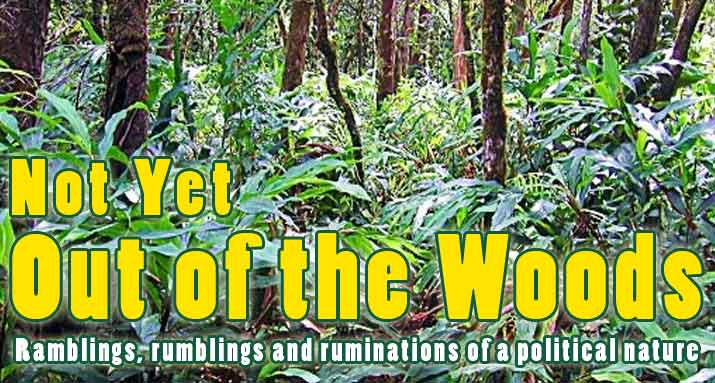On several levels this is a bad decision, but it is also indicative of a deeper trend within the establishment institute.
First of all the list of nations boycotting the ceremonial proceeedings has grown to include Vietnam, the Philippines, Kazakhstan, Russia, Serbia, Ukraine, Colombia, Venezuela, Cuba, Tunisia, Morocco, Sudan, Saudi Arabia, Iraq, Iran, Egypt, Pakistan and Afghanistan - in addition to China.
While this may comprise a list of most of the less desirable national regimes in the world it strikes me as odd for the institute to wish to unify them in opposition to the supposed aim of world peace, and it can only increase friction and lead to greater global instability - thereby undermining the efforts of individuals for greater harmony.
This is summed up for the BBC by Chatham House's Kerry Brown,
"the dialogue is now hardening into precisely the kind of 'clash of civilisations' that former elite leaders in China like Deng Xiaoping in the 1980s did their best to avoid."So whatever the actual merits of Mr Liu as a peace campaigner, the recognition of him by the Nobel Institute is contrary to their near-term intentions.
In one particular way this is indicative of the politicisation involved in the process and it highlights the dominant tendency in those parts for a more confrontational approach to high politics. Under these prevailing conditions polarisation escalates until a clash is inevitable. And that prospect is a cause for major concern.
But regarding Mr Liu, his Nobel citation states that the award is "for his long and non-violent struggle for fundamental human rights in China."
In other words the institute is aligning itself not for any successful achievements, but for being on the frontline of a struggle which it wishes to show its support for.
As Francis Sejested, chair of the awarding committee from 1991-1999, wrote in 2001, the prize has had a distinct and sometimes uncomfortable history. He explains:
"Some [laureates] won the prize for their non-violent struggle against racial discrimination, and some for their efforts to establish international human rights organizations, but most were given the award for peaceful but effective struggles for civil and political rights in their own countries."Clearly not all laureates are given the award on equal merit, and just as clearly Mr Liu falls into the first category.
So it obviously wasn't a year where there was an outstanding candidate, though it was nevertheless a marked improvement on the grounds provided for handing it to Obama last year shortly after he obtained office.
As I said then, this comes down to the arbitrary and artificial nature of an award given on an annual basis and reflecting contemporary circumstances rather than as something objective which will stand the test of time - after all real peace is not a transient state of affairs.
And equally this raises some challenging questions about what we mean by 'fundamental rights' or freedoms, human, civil or otherwise.
-
Which brings me to asking you, who you think has been the most/least deserving recipient of the Peace Prize and why?
Gandhi would be a common favorite candidate, but he was never given it. Henry Kissinger and Anwar Sadat would be less fovourable for what transpired after their respective 'successful' peace negotiations.
For me the #1 is an often overlooked figure - Fridtjof Nansen - who was a polar explorer, scientist and diplomat.
His life's work can't easily be summed up, but his advances to oceanography, zoology and as a pioneer in neurology alone would be sufficient for one lifetime.
However he did this all while pushing back the boundaries of human endurance in the 'race for the pole' (think Shackleton crossed with Darwin), before then being a principle mover in the establishment of a stable and independent Norway and founding the precursor to UNHCR when millions of people were displaced after the end of World War One and their national statuses were in limbo after partition of the defeated empires (a similar situation three decades later when independence for India resulted in partition couldn't prevent the deaths of millions in mass outbreaks of civil violence even with the intervention of the aforesaid Gandhi).
Nansen's very real and lasting achievements epitomise the worthy contribution to all humanity evisioned by Alfred Nobel when he wrote in his Will that the peace prize should be given for whoever made "the most or the best work for fraternity between nations, for the abolition or reduction of standing armies and for the holding of peace congresses," and the memory of Nansen is something his countrymen shouldn't diminish in their zeal to progress their subjective vision of a global ideology.

No comments:
Post a Comment